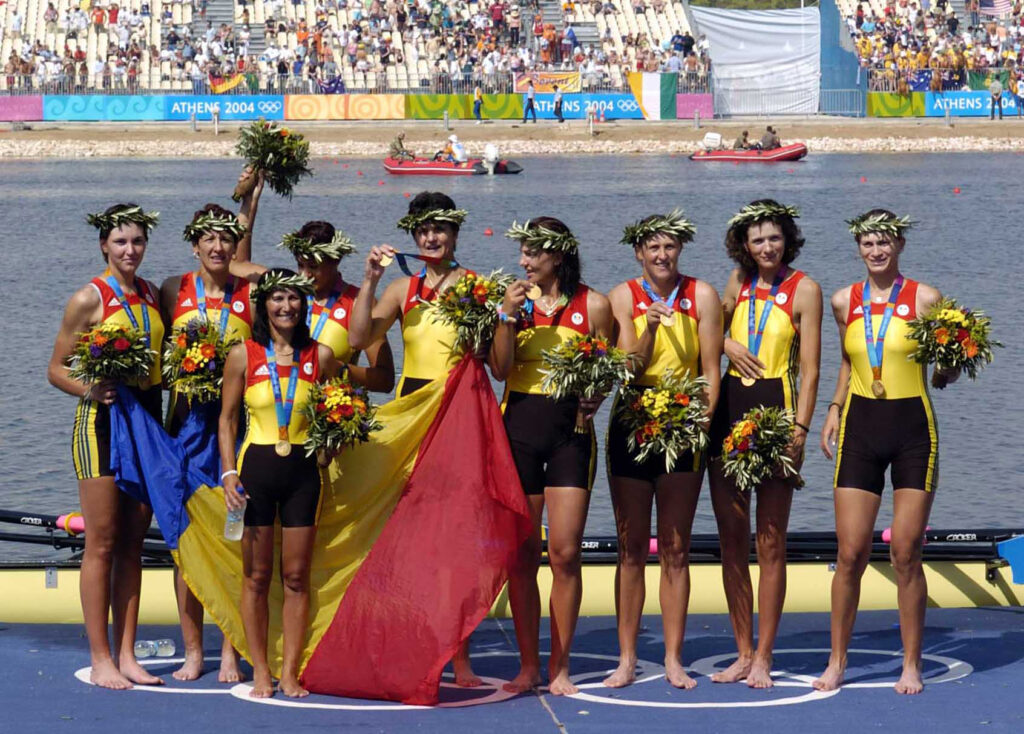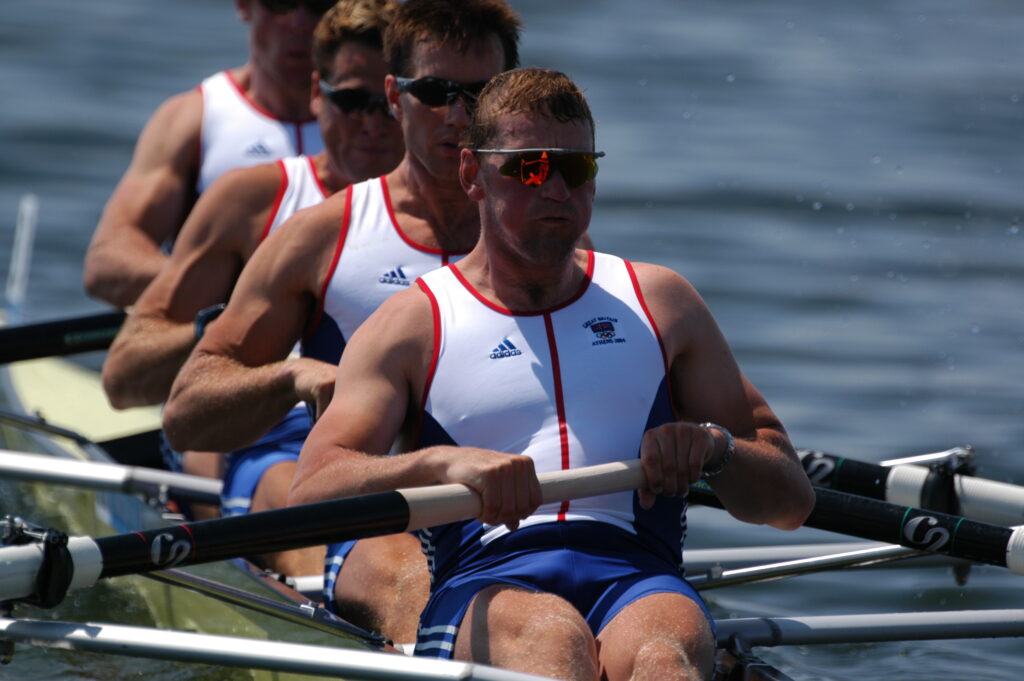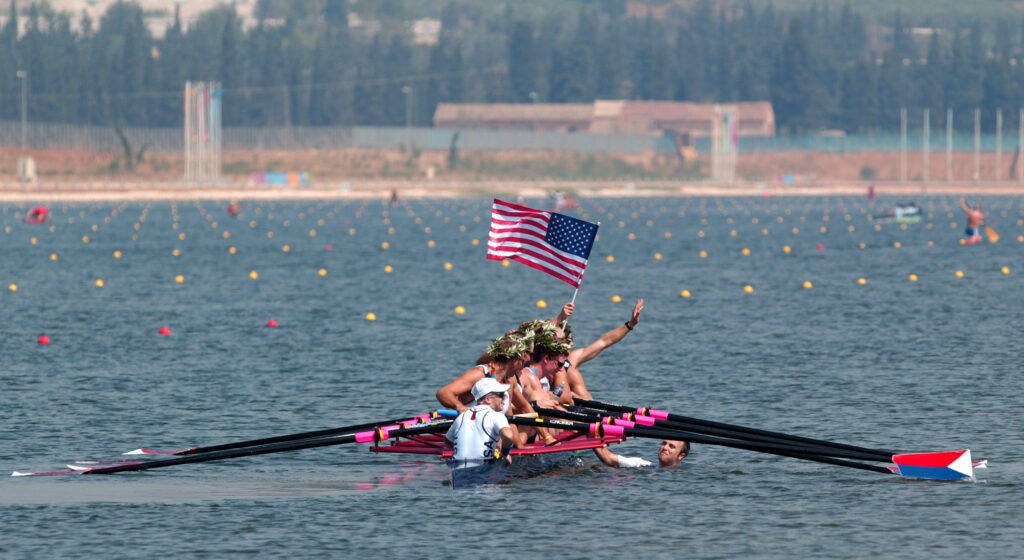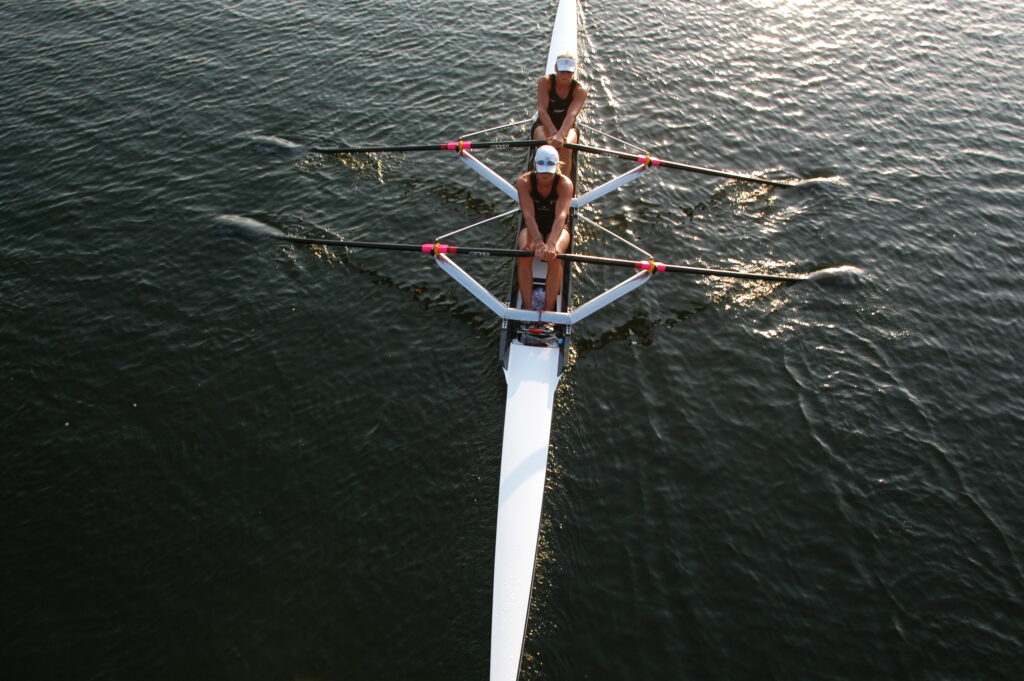
27 Jun 2024
Olympic rewind: Athens 2004
The Athens 2004 Olympic Games rowing regatta took place between 14-22 August 2004 at the Schinias Olympic Rowing and Canoeing Centre in Greece. Schinias was built for the Olympic Games, and the only previous event to be held there was the 2003 World Rowing Junior Championships.
Over 550 athletes from 55 nations took part in the regatta, with 23 winning medals. While Romania topped the medals table with three golds, a total of 11 nations won at least one gold medal.
The Athens Olympic Games featured eight events for men and six for women, with only the men racing the coxless four and lightweight coxless four.
Key moments

Elisabeta Lipa becomes the GOAT
Elisabeta Lipa’s rowing career began all the way back in 1981 at the World Junior Rowing Championships. Athens 2004 was to be her final competition, and she went out setting standards that are unlikely to be matched. By the time she arrived at Schinias, Lipa had already won four consecutive Olympic gold medals, plus two silver medals and a bronze from the previous seven Olympic Games. In Athens, she was almost 40 years old and was competing at her sixth Olympic Games. Her Romanian women’s eight were pipped to the automatic place in the final in their heat by 0.22 seconds by the USA, but won the repechage. In the final, the USA led out but Romania were never far behind. In the third 500m Lipa’s crew put in a devastating push, and the rest of the field had no answer. Lipa retired with a record eight Olympic medals, including five golds.

Four gold medals in a row for Pinsent and Boron
Joining Lipa among the most decorated rowers of all time in Athens were Great Britain’s Matthew Pinsent and Germany’s Katrin Boron. Both were competing at their fourth consecutive Olympic Games, and both won their fourth consecutive Olympic gold medals.
For Pinsent, it was his first Olympics racing in a crew without Steve Redgrave, with whom he had won his three previous gold medals. Canada, the reigning world champions, led at 1500m before the British four came back through – and took gold on the final surge. It was Pinsent’s last race, and an emotional victory.
Boron had spent the previous six seasons in the women’s double sculls, winning gold in that boat in Sydney, but she was moved into the women’s quadruple sculls for Athens – the boat she had won in in Atlanta 1996. The Germans won their heat and led the final throughout, despite a determined push from silver medallists Great Britain. Boron would go on to collect one further Olympic medal, bronze, in the quadruple sculls in Beijing 2008.

A world best time for the USA
Schinias produced largely calm conditions, but it could still be a quick course with the water warmed by the intense heat that week. In heat 2 of the men’s eights the USA and Canada both broke the previous world best time. The USA’s time of 5:19.85 stood until 2012, when Canada broke it. The final, which the USA also won, was significantly slower. Several members of the US crew remain involved in rowing, coaching collegiate teams.
Sally stops rowing
The most infamous moment to come out of Athens was in the women’s eights final. While the glory went to Elisabeta Lipa’s Romania eight, there was the opposite for Australia. The Australian women, racing in lane 6, had a lightning start and stayed up there with the USA and Romania throughout the first 1000m. But then the pace took its toll and when Romania moved, Australia dropped back through the pack. At 1500m they were well off the pace, and as the cameras focused on the leaders Australia’s bow dropped out of the picture. But they were struggling, and in the closing stages of the race their 6-seat, Sally Robbins, stopped rowing. In the race footage as Australia cross the line, Robbins can be seen lying down, apparently prostrate through exhaustion. The incident would lead to Robbins being dubbed ‘Lay-down Sally’ by the media and she was targeted for intense criticism back home in Australia. It was to be her last international race, and she was not selected again for Australia.

A debut for some of the greats
While the likes of Lipa and Pinsent ended their careers in Athens, it was the first Olympic Games for some who would go on to become among the greats of the sport. The New Zealand men’s four included two names who are now familiar to any rowing fan – Mahe Drysdale and Eric Murray – both driven on to their later achievements by a disappointing fifth place in the final. Their Kiwi teammates Caroline and Georgina Evers-Swindell also made their Olympic debuts, albeit more successfully with their first of back-to-back gold medals in the women’s double sculls. Another Olympic debutant in Athens was USA rower Caryn Davies, who was the 2023 recipient of the Thomas Keller Medal. Davies won women’s eight silver in Athens, and would add gold at the next two Olympic Games among many other achievements.

